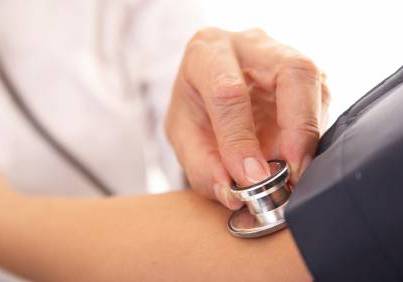Hypertension – High Blood Pressure
Hypertension or High Blood pressure is one of the 3 main risk factors for heart attack and stroke. The other risk factors are smoking and raised blood cholesterol levels. Lowering blood pressure (and lowering blood cholesterol) saves lives. If your blood pressure is consistently over 160 / 90 mmHg, your doctor would tell you that you have hypertension, but generally speaking, the lower your blood pressure, the better.
If your pressure is between 140 / 90 and 160 / 90 mmHg, then you maybe diagnosed as having ‘border line’ hypertension. Blood pressure readings are a remarkably accurate predictor of life expectancy; the higher the pressure, the greater the risks of heart disease than people with lower than average levels. For this reason, it has been extremely difficult to find a working definition of hypertension. Perhaps the most sensible view is to define it as ‘that level of blood pressure where treatment with anti-hypertensive drugs does more good than harm‘, because there s no such thing as drug treatment that does not have some potential side effects.
If your Blood Pressure is found to be more than 160/90 mmHg, and if you have several different risk factors for heart disease, such as high cholesterol, being a smoker and a family tendency to heart disease, then treating your high Blood Pressure is likely to be very worth-while. On the other hand, for some young people with only marginally raised blood pressure, and no other risk factors for heart disease, the value of Blood pressure lowering drugs is very small and drug treatment may therefore be held back worth- while. On the other hand, for some young people with only marginally raised blood pressure, and no other risk factors for heart disease, the value of Blood pressure lowering drugs is very small and drug treatment may therefore be back back. However it is however, crucial that such people are re-checked at regular intervals of about 6 months.
Hypertension has been called the ‘silent killer’ because it usually causes no symptoms until a late stage of the disease, contrary to what many people believe, it is not possible to feel you own blood pressure The only way to find out whether your blood pressure is raised is to have it measured with a blood pressure machine. As Blood pressure causes no symptoms until complications begin to show themselves about half of all individuals who have it remain unaware that they have a problem.
Blood vessels are like rubber tubes that carry blood constantly to wherever it is needed. Arteries have to withstand the great pressures with which the blood is pumped out of the heart. If the blood pressure is higher than usual over many years, as in untreated hypertension, the vessel gets damaged. The lining of the arteries can become rough and thick, and this eventually causes them to narrow and become less flexible or elastic, than previously. This is known as arteriosclerosis. If an artery becomes too narrow, Blood cannot get through proper, and the part of the body that relies on that artery for its blood supply is starved of blood and the all important oxygen that it carries. As the artery narrows there is an increased tendency to develop blood clots (thrombosis ), which may cause total blockage of the artery so that the part of the body that it serves dies If the heart or the brain is affected, the dead area is called an infarct.
The whole point of having your Blood pressure checked is that if you are found to have hypertension, it is possible to treat it effectively and thus bring down to normal. It does not matter particularly how severe the hypertension was in the first place. What is really important is how well your blood pressure is controlled over the ensuing years. It is better to have had severe hypertension that has been well treated than to have slightly raised blood pressure that remains untreated or neglected.

